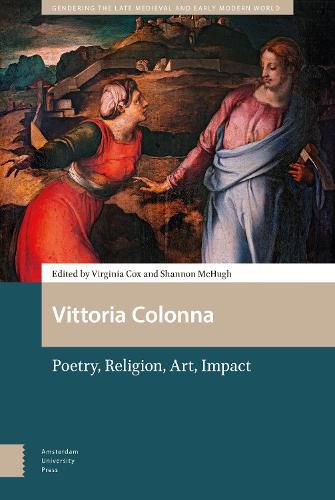Readings Newsletter
Become a Readings Member to make your shopping experience even easier.
Sign in or sign up for free!
You’re not far away from qualifying for FREE standard shipping within Australia
You’ve qualified for FREE standard shipping within Australia
The cart is loading…






This edited collection presents fresh and original work on Vittoria Colonna, perhaps the outstanding female figure of the Italian Renaissance, a leading Petrarchist poet, and an important figure in the Italian Reform movement. Until recently best known for her close spiritual friendship with Michelangelo, she is increasingly recognized as a powerful and distinctive poetic voice, a cultural and religious icon, and an important literary model for both men and women. This volume comprises compelling new research by established and emerging scholars in the fields of literature, book history, religious history, and art history, including several studies of Colonna’s influence during the Counter-Reformation, a period long neglected by Italian cultural historiography. The Colonna who emerges from this new reading is one who challenges traditional constructions of women’s place in Italian literature: no mere imitator or follower, but an innovator and founder of schools in her own right.
$9.00 standard shipping within Australia
FREE standard shipping within Australia for orders over $100.00
Express & International shipping calculated at checkout
This edited collection presents fresh and original work on Vittoria Colonna, perhaps the outstanding female figure of the Italian Renaissance, a leading Petrarchist poet, and an important figure in the Italian Reform movement. Until recently best known for her close spiritual friendship with Michelangelo, she is increasingly recognized as a powerful and distinctive poetic voice, a cultural and religious icon, and an important literary model for both men and women. This volume comprises compelling new research by established and emerging scholars in the fields of literature, book history, religious history, and art history, including several studies of Colonna’s influence during the Counter-Reformation, a period long neglected by Italian cultural historiography. The Colonna who emerges from this new reading is one who challenges traditional constructions of women’s place in Italian literature: no mere imitator or follower, but an innovator and founder of schools in her own right.